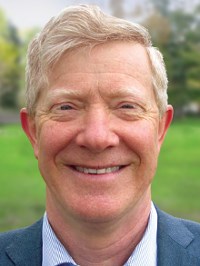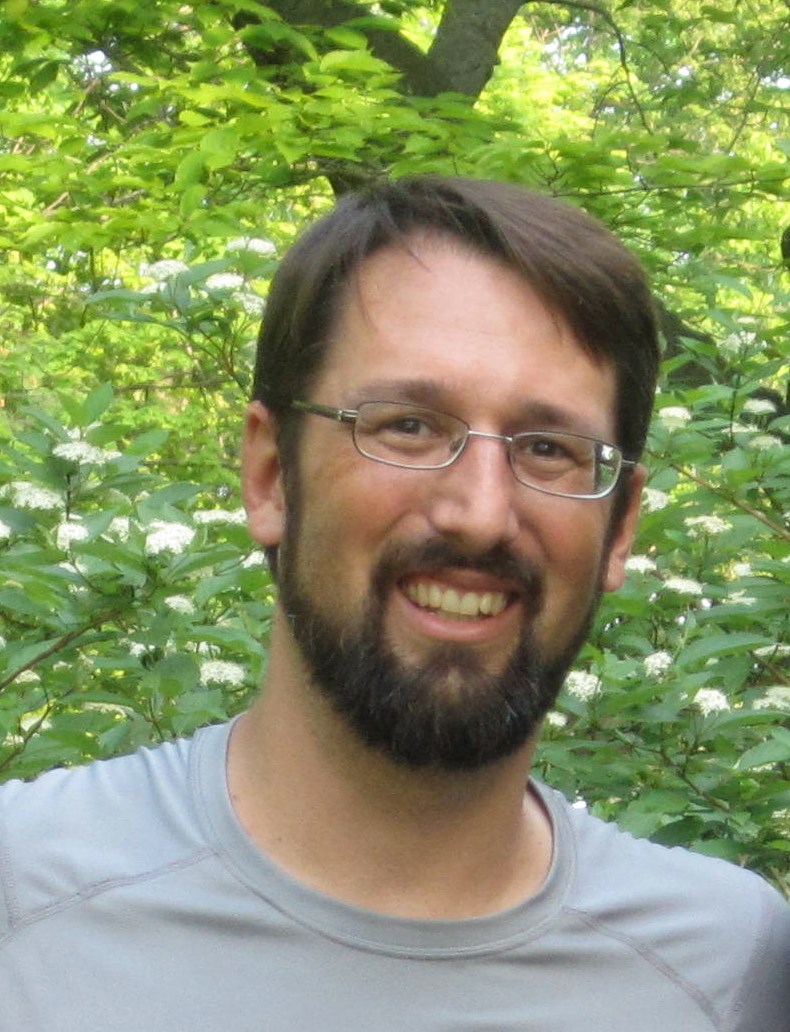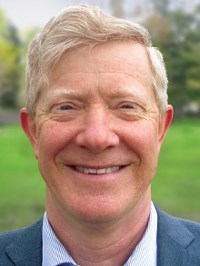Lyle Young learned about the Bible while growing up on a farm in Saskatchewan, but it wasn’t until his family moved to Regina that he began attending Sunday school at the United Church of Canada. “I loved going to Sunday school,” Lyle told me during a recent interview. “It was one of my favourite things—especially the Bible stories.
”While travelling and working toward a degree in diplomacy, Lyle Young developed a great love for all humanity. But his interest in religion and philosophy never diminished, and he was soon led to become a Christian Science practitioner and teacher. He’ll be in Victoria to present “A Clearer View of You,” a talk about spiritual identity and how the practical understanding of it leads to healing. It’s being held at the First Church of Christ, Scientist (1205 Pandora Avenue) on Sunday, November 17 at 2:00 pm.
Here are a few highlights from my conversation with Lyle.
Matt Jackson: When did you first learn about Christian Science? What attracted you to it?
 Lyle Young: While studying music at Ball State University in Indiana, I became friendly with a professor who shared my interest in religion and philosophy. He encouraged me to attend a youth group, which turned out to be a group of Christian Scientists. I was really struck by their high level of conversation—both during and after our meetings.
Lyle Young: While studying music at Ball State University in Indiana, I became friendly with a professor who shared my interest in religion and philosophy. He encouraged me to attend a youth group, which turned out to be a group of Christian Scientists. I was really struck by their high level of conversation—both during and after our meetings.
A few years later I began attending a branch church in Saskatoon while working on my Masters in Political Science. I served as a parliamentary intern for a year, and travelled widely to compare legislative systems in various countries. I even studied in Buenos Aires for a year, where I decided I wanted to be a diplomat.
MJ: You’ve been a Christian Science practitioner and teacher for many years, so obviously you changed your mind. What happened?
LY: Christian Science was a tool I could use, so I began setting aside two nights per week to pray for others. I went through the newspaper—spent time praying about politics, economics, all the issues I was reading about.
Eventually it occurred to me that even if I became the Secretary General of the United Nations, I wouldn’t have the same impact as a Christian Science practitioner, because a practitioner works on the mental level. That was my perception anyway.”
MJ: You’ll be talking about spiritual identity at your upcoming lecture. How does Christian Science think about this concept? Why is it important to healing?
LY: Christian Science teaches that God isn’t just one more thing in a universe of trees, houses, people. It teaches that God is all. In fact, God is so infinite that He/She exists instead of an imperfect material world. It teaches that there’s nothing opposed to God, that everything exists because of God, and that God is very good. As far as I know, that’s unique to Christian Science.
The concept of identity in Christian Science flows from this idea of infinitude. It’s not our physical characteristics like size, age, and hair colour that define who we are. Nor is our identity shaped by genes or our environment. It’s shaped by the love of God. As we learn about that humanly, it cleanses our thought and brings healing. Freedom from fear is a big part of that.
MJ: Can you give me an example of how this works?
LY: A few years ago I began experiencing intense pain in my lower abdomen, which made me think of a family member who had been hospitalized with gallstones. So I began praying and reasoning from the standpoint of my spiritual identity, which says that there’s actually nothing physical that needs changing. The only thing that needed changing was the concept about myself, which led to healing.
In essence, what you’re doing is letting go of a limited concept of a person and realizing the higher concept of that person in its place.
MJ: I remember when I knew you in Saskatoon many years ago you often talked about praying for the world. How would you advise doing that today, when we seem to be facing so many large-scale problems?
LY: My suggestion is to always begin with God. Whatever faith tradition somebody comes from, start by reasoning that God is love. Jesus talked about the kingdom of heaven being here and now. Prayer helps us to see that kingdom, and it helps us take practical steps relative to ourselves, our family, our workplace, and relative to improving the environment.
 Matt Jackson has been fascinated by how science and religion relate to each other for as long as he can remember. He is a member of the Christian Science church in Victoria, BC, and has been a professional writer and editor for 22 years.
Matt Jackson has been fascinated by how science and religion relate to each other for as long as he can remember. He is a member of the Christian Science church in Victoria, BC, and has been a professional writer and editor for 22 years.
You can read more articles on our interfaith blog, Spiritually Speaking, HERE



